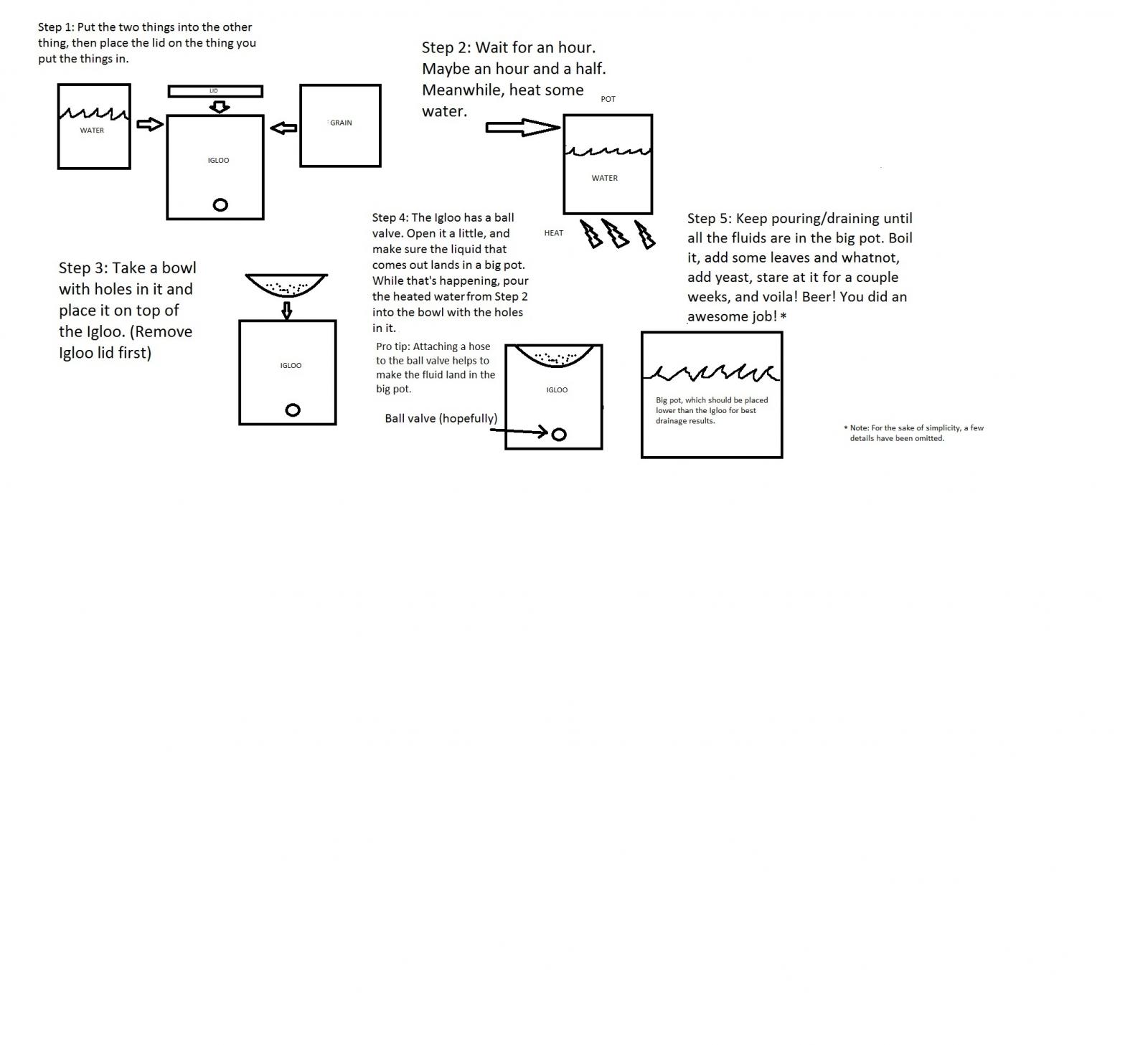I don't know if I'd say there's a lot more equipment needed. I have a cube igloo cooler w/ a ball-valve fitted, a torpedo screen, and that's my mash tun. Probably, what, $60-80 or thereabouts? I also have a mash paddle, but I think I'd need one for BIAB as well.
That's it. I doubt the cleaning is much different than cleaning the bag. I dump out the spent grain, spray the mash tun out, and I'm done.
There's always been one element of BIAB I don't fully understand since I don't do BIAB, and that's sparging. I know some do the no-sparge method, but that leaves sugar behind. I don't like that. I want all that sugar in my wort.





